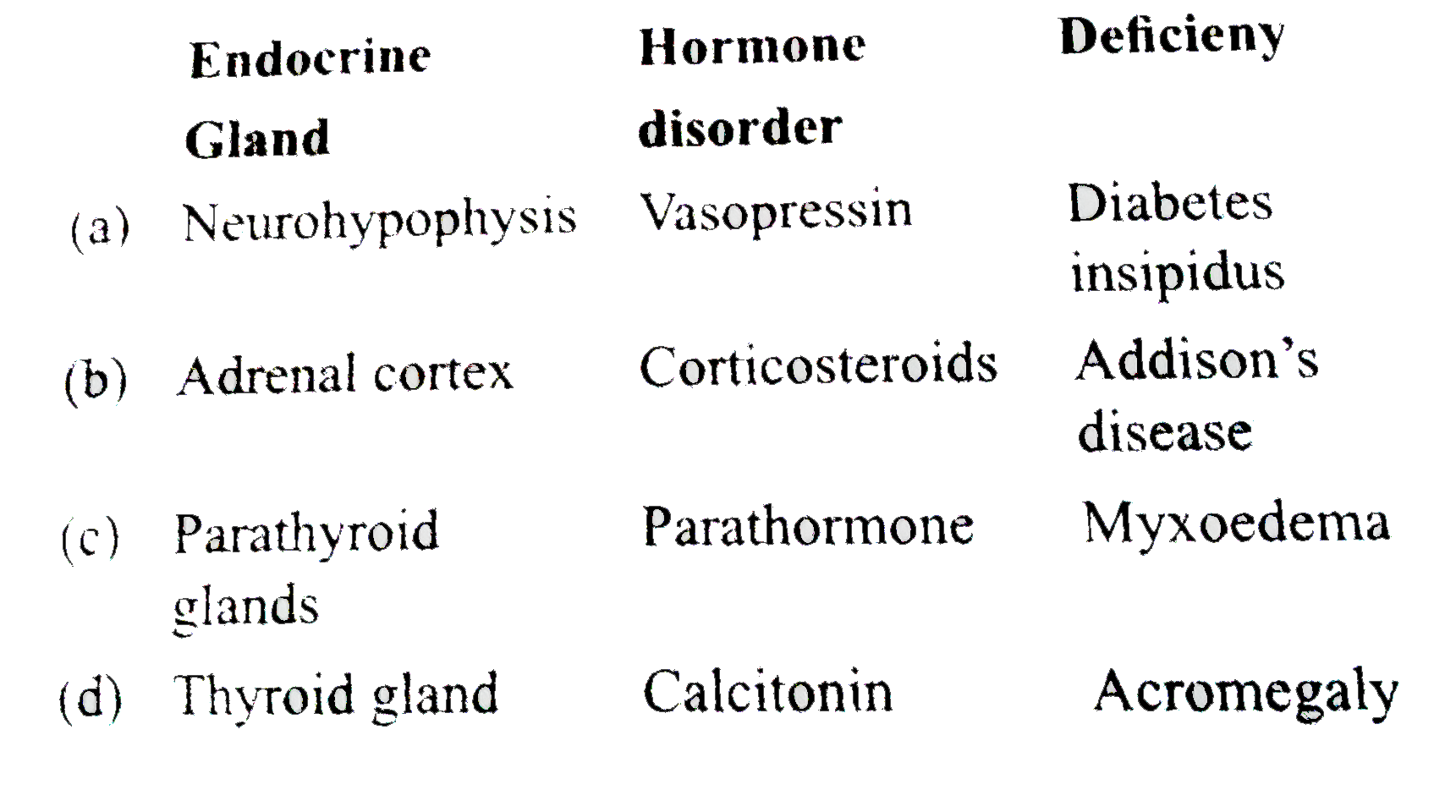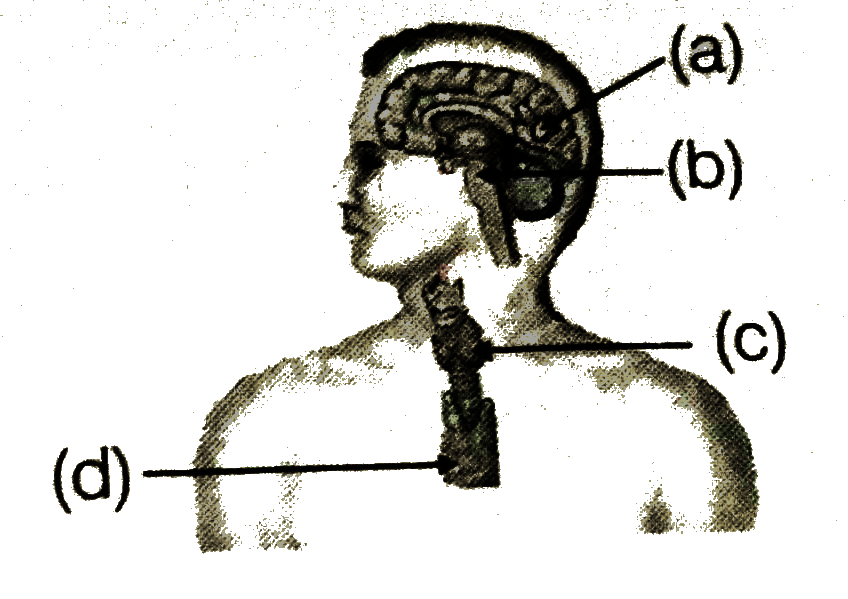There are three endocrine glands involved in carbohydrate metabolism, mark the correct set.
Pancreas, neurohypophysis and adrenal
Pancreas, adenohypophysis and thyroid
Pancreas, pituitary and liver
Pancreas, adenohypophysis and adrenal
The correct Answer is:B
To solve the question regarding the three endocrine glands involved in carbohydrate metabolism, we can follow these steps:
Step 1: Identify the Endocrine Glands
The first step is to understand what endocrine glands are and their role in carbohydrate metabolism. The main glands involved in this process are:
- Pancreas
- Adrenal Gland
- Pituitary Gland (specifically the adenohypophysis)
Step 2: Role of Each Gland
1. Pancreas:
- The pancreas has both endocrine and exocrine functions. The endocrine part contains the islets of Langerhans, which include:
- Beta cells that secrete insulin, which lowers blood glucose levels.
- Alpha cells that secrete glucagon, which raises blood glucose levels.
- Thus, the pancreas plays a crucial role in maintaining glucose levels in the blood.
2. Adrenal Gland:
- The adrenal gland is divided into two parts: the cortex and the medulla.
- The cortex has three zones, with the zona fasciculata secreting cortisol, a glucocorticoid that helps in carbohydrate metabolism by promoting gluconeogenesis and increasing blood sugar levels.
3. Pituitary Gland (Adenohypophysis):
- The anterior lobe of the pituitary gland secretes Adrenocorticotropic hormone (ACTH), which stimulates the adrenal cortex to release cortisol. This hormone is essential for regulating carbohydrate metabolism.
Step 3: Conclusion
Based on the roles of these glands, the correct set of endocrine glands involved in carbohydrate metabolism is:
- Pancreas
- Adrenal Gland
- Adenohypophysis (anterior pituitary)
Thus, the correct answer is option 4: Pancreas, Adenohypophysis, and Adrenal Gland.
The first step is to understand what endocrine glands are and their role in carbohydrate metabolism. The main glands involved in this process are:
- Pancreas
- Adrenal Gland
- Pituitary Gland (specifically the adenohypophysis)
1. Pancreas:
- The pancreas has both endocrine and exocrine functions. The endocrine part contains the islets of Langerhans, which include:
- Beta cells that secrete insulin, which lowers blood glucose levels.
- Alpha cells that secrete glucagon, which raises blood glucose levels.
- Thus, the pancreas plays a crucial role in maintaining glucose levels in the blood.
- The adrenal gland is divided into two parts: the cortex and the medulla.
- The cortex has three zones, with the zona fasciculata secreting cortisol, a glucocorticoid that helps in carbohydrate metabolism by promoting gluconeogenesis and increasing blood sugar levels.
- The anterior lobe of the pituitary gland secretes Adrenocorticotropic hormone (ACTH), which stimulates the adrenal cortex to release cortisol. This hormone is essential for regulating carbohydrate metabolism.
Based on the roles of these glands, the correct set of endocrine glands involved in carbohydrate metabolism is:
- Pancreas
- Adrenal Gland
- Adenohypophysis (anterior pituitary)
Similar Questions
Mark the correct sets

View SolutionHormones involved in carbohydrate metabolism are
View SolutionHormones involved in carbohydrate metabolism are
View SolutionLabel the endocrine gland in figure

View SolutionCarbohydrate metabolism is controlled by
View SolutionCarbohydrate metabolism is controlled by
View SolutionLargest endocrine gland in humans
View SolutionThe end product of carbohydrate metabolism is
View SolutionThe end product of carbohydrate metabolism is
View SolutionThe largest endocrine gland in human is
View Solution
